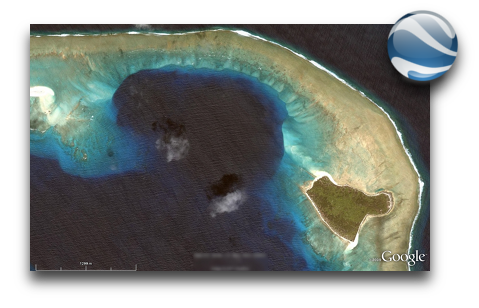What is commercial?
/ Just another beautiful geomorphological locality in Google's virtual globe software, a powerful teaching aid and just downright fun to play withAt one of my past jobs, we were not allowed to use Google Earth: 'unlicensed business use is not permitted'. So to use it we had to get permission from a manager, then buy the $400 Professional license. This came about because an early End-User License Agreement (EULA) had stipulated 'not for business use'. However, by the time the company had figured out how to enforce this stipulation with an auto-delete from PCs every Tuesday, the EULA had changed. The free version was allowed to be used in a business context (my interpretation: for casual use, learning, or illustration), but not for direct commercial gain (like selling a service). Too late: it was verboten. A game-changing geoscience tool was neutered, all because of greyness around what commercial means.
Just another beautiful geomorphological locality in Google's virtual globe software, a powerful teaching aid and just downright fun to play withAt one of my past jobs, we were not allowed to use Google Earth: 'unlicensed business use is not permitted'. So to use it we had to get permission from a manager, then buy the $400 Professional license. This came about because an early End-User License Agreement (EULA) had stipulated 'not for business use'. However, by the time the company had figured out how to enforce this stipulation with an auto-delete from PCs every Tuesday, the EULA had changed. The free version was allowed to be used in a business context (my interpretation: for casual use, learning, or illustration), but not for direct commercial gain (like selling a service). Too late: it was verboten. A game-changing geoscience tool was neutered, all because of greyness around what commercial means.
Last week I was chastised for posting a note on a LinkedIn discussion about our AVO* mobile app. I posted it to an existing discussion in a highly relevant technical group, Rock Physics. Now, this app costs $2, in recognition of the fact that it is useful and worth something. It will not be profitable, simply because the total market is probably well under 500 people. The discussion was moved to Promotions, where it will likely never be seen. I can see that people don't want blatant commeriality in technical discussion groups. But maybe we need to apply some common sense occasionally: a $2 mobile app is different from a $20k software package being sold for real profit. Maybe that's too complicated and 'commercial means commercial'. What do you think?
But then again, really? Is everyone in applied science not ultimately acting for commercial gain? Is that not the whole point of applied science? Applied to real problems... more often than not for commercial gain, at some point and by somebody. It's hopelessly idealistic, or naïve, to think otherwise. Come to think of it, who of us can really say that what we do is pure academy? Even universities make substantial profits—from their students, licensing patents, or spinning off businesses. Certainly most research in our field (hydrocarbons and energy) is paid for by commercial interests in some way.
I'm not saying that the reason we do our work is for commercial gain. Most of us are lucky enough to love what we do. But more often than not, it's the reason we are gainfully employed to do them. It's when we try to draw that line dividing commercial from non-commercial that I, for one, only see greyness.








 Except where noted, this content is licensed
Except where noted, this content is licensed